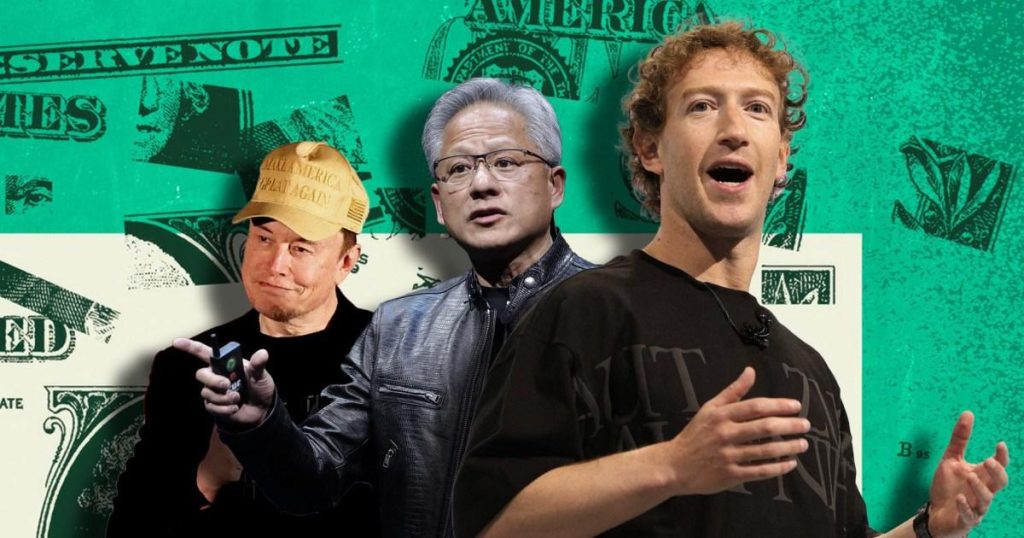Paragraph 1: The Growing Divide: Record Wealth Accumulation Juxtaposed with Widespread Poverty
The year 2024 has witnessed an unprecedented surge in the wealth of the world’s richest individuals, further exacerbating the already stark contrast between the haves and the have-nots. The combined net worth of the top 500 individuals has reached a staggering $10 trillion (£8 trillion), a testament to the concentrating effect of economic growth. This immense accumulation of wealth stands in stark contrast to the harsh realities faced by a significant portion of the global population. Nearly 700 million people endure extreme poverty, subsisting on less than $2.18 (£1.71) per day, a figure that underscores the depth of global inequality. An even larger number, 3.5 billion people, constituting 44% of the world’s population, live on less than $7 (£5.46) a day, highlighting the widespread struggle for basic necessities. This disparity raises fundamental questions about the equitable distribution of resources and the effectiveness of current economic systems.
Paragraph 2: Tech Titans Dominate the Wealth Landscape
The technology sector has become a primary driver of wealth accumulation, with tech titans dominating the upper echelons of the global rich list. Among the most prominent figures are Elon Musk, CEO of SpaceX; Mark Zuckerberg, founder of Facebook; and Jensen Huang, CEO of Nvidia. Their ranks are further bolstered by other industry giants such as Oracle co-founder Larry Ellison, Amazon boss Jeff Bezos, Michael Dell, and Google co-founders Larry Page and Sergey Brin. These eight individuals alone have seen their combined wealth increase by over $610 billion (£477 billion) in 2024, a sum that represents a substantial portion of the overall wealth growth among the top 500. Their influence extends beyond the realm of business, often shaping public discourse and influencing political landscapes. This concentration of power warrants careful consideration regarding its potential impact on societies and democratic processes.
Paragraph 3: Musk’s Ascent: Political Alignment and Soaring Stock Prices
Elon Musk’s financial trajectory has been particularly remarkable, with his net worth nearly doubling to an astounding $450 billion (£352 billion) in 2024. This meteoric rise can be attributed in part to the re-election of Donald Trump as US President, a candidate Musk openly supported both financially and through his social media platform, X (formerly Twitter). While Musk’s actions and pronouncements have generated controversy, his alignment with the incumbent administration appears to have had a positive impact on the stock prices of his companies, including Tesla, SpaceX, and xAI. This connection highlights the increasingly intertwined nature of political power and economic influence.
Paragraph 4: The Widening Gap: Musk’s Unprecedented Lead
Musk’s financial success has created an unprecedented gap between him and the second wealthiest individual, Jeff Bezos. The difference in their net worth stands at a record $240 billion (£188 billion), a figure that underscores the scale of Musk’s financial dominance. This disparity raises questions about the potential implications of such concentrated wealth in the hands of a single individual. The influence wielded by individuals with such vast resources extends far beyond the business realm, impacting social, political, and technological landscapes.
Paragraph 5: Implications of Concentrated Wealth: Examining the Broader Context
The increasing concentration of wealth in the hands of a select few raises important questions about economic inequality and its broader societal implications. While the success of these individuals often stems from innovation and entrepreneurial drive, the resulting disparities can exacerbate social divisions and create unequal opportunities. The concentration of economic power also raises concerns about the potential influence on political processes and policy decisions, with the potential for the interests of a wealthy elite to be prioritized over the needs of the broader population. This dynamic necessitates a thoughtful discussion about the role of government regulation and social safety nets in mitigating the negative effects of extreme inequality.
Paragraph 6: The Need for a Balanced Perspective: Innovation vs. Inequality
While acknowledging the extraordinary achievements of these tech titans and the contributions they have made to technological advancement, it is crucial to maintain a balanced perspective. The unprecedented accumulation of wealth by a small group of individuals should prompt a critical examination of the underlying economic systems that enable such disparities. Finding a sustainable path forward requires fostering innovation and entrepreneurship while simultaneously addressing the growing gap between the wealthiest and the rest of society. This involves exploring policy solutions that promote more equitable distribution of wealth and ensure that economic progress benefits all members of society, not just a select few. Addressing this complex challenge requires open dialogue, collaboration, and a commitment to creating a more just and equitable economic future.











